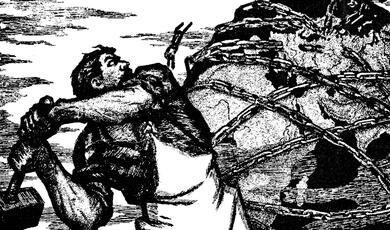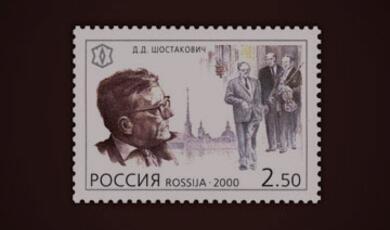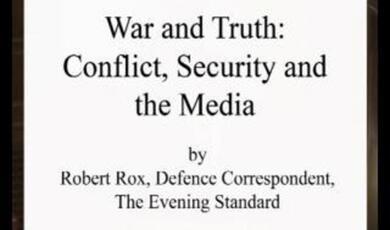Reading and Misreading the Iranian Revolution
Share
- Details
- Text
- Audio
- Downloads
- Extra Reading
Why did the Iranian Revolution catch so many in US and UK Governments by surprise in 1978-79? Why were so many enthusiastic about the fall of the Shah? Why did so many Western observers - including Michel Foucault, Fred Halliday, and Edward Said, misread Ayatollah Khomeini?
This lecture examines readings and mis-readings of the Iranian Revolution in Europe and the United States from the perspective of today’s uprising in Iran. Are we repeating the analytical mistakes of the past?
Download Text
Reading and Misreading the Iranian Revolution
Dr Roham Alvandi
14 November 2023
The Fall of the Shah
A Counter-Factual History
- The nature of the Islamic Republic that replaced the Pahlavi monarchy
- The Tehran Hostage Crisis and the presidency of Jimmy Carter
- Iran-Iraq War
- Gulf War of 1991
Why did we misread the Revolution in Europe and the United States?
- Why were American and British decision-makers so reluctant to see that the fall of the Shah was coming?
- Why were some intellectuals celebrating the fall of the Shah?
- Why were other intellectuals so reluctant to acknowledge that they had gotten the Revolution wrong?
The American Misreading
- US support for the 1953 coup that made the Shah an absolute monarch
- Shah’s autonomy from the United States in the 1970s
- Failure to support Iranian reformists
Jimmy Carter and the Shah
- The end of uncritical support for the Shah under Jimmy Carter
- The myth that Carter abandoned the Shah
- The Shah’s refusal to use force to hold on to power
The British Misreading
Britain and Iran after Empire
- Britain had lost its oil monopoly in Iran in 1951 and never recovered
- Popular perception of Britain as all powerful versus reality of a declining power
- Focus on commercial contracts and ignorance of social and political dynamics
The Labour Party and the Iranian Revolution
- Growing criticism of the Shah in Britain itself amongst the Left and Amnesty
- Failure of Whitehall and Labour ministers to understand the fragility of Shah’s regime
- BBC Persian’s role in the Revolution
- Browne Report commissioned by Lord Owen.
The Intellectuals’ Misreading
Contacts with the Iranian opposition in the West
- Shah’s visit to Berlin in 1967
- Confederation of Iranian Students in Europe and the United States
- Radicalization of Iranian student groups: speaking of armed struggle and Westoxification in Persian and of human rights in English, German and French
- Failure of the Western Left to understand the significance of the Shah reforms or the anti-liberal authoritarianism of the Iranian opposition
Foucault and the Iranian Revolution
- Michael Foucault’s critique of modernity and his attraction to Khomeini
- Foucault and the seductions of Islamism
- Foucault, unlike much of the Left, was correct that the Iranian Revolution was anti-modern
- Foucault ignored the danger of clerical rule for democracy, women’s rights and minority rights
The Triumph of an ‘Anti-Imperialist’ Revolution
Revolutionary Terror
- Executions of the Shah’s generals and officials (15 February 1979)
- International Women’s Day (8 March 1979)
- Execution of Hoveyda (7 April 1979)
- Closure of Ayandegan (8 August 1979)
An ‘Anti-Imperialism of Fools’?
- Richard Falk, Andrew Young, and the celebration of Khomeini
- Fred Halliday and ‘Islam with a fascist face’
- Edward Said and America’s Islamophobia
Misreading ‘Women, Life, Freedom’ in 2023
Context of Iran’s 2022 uprising
- Women: secularism vs. Islamism
- Life: prosperity vs. corruption
- Freedom: liberalism vs. authoritarianism
Our ‘culture wars’ and Iran’s enqelab
- Anti-Americanism and the reluctance of the Left to criticism the Islamic Republic
- Islamophobia in the West and the issue of mandatory veiling
- Making it about us: Feminism and Kurdish rights
© Dr Roham Alvandi 2023
References and Further Reading
Ervand Abrahamian, Khomeinism: Essays on the Islamic Republic (London: I. B. Tauris, 1993).
Janet Afary and Kevin B. Anderson, Foucault and the Iranian Revolution: Gender and the Seductions of Islamism (Chicago: The University Press of Chicago, 2005).
Roham Alvandi, Nixon, Kissinger, and the Shah: The United States and Iran in the Cold War (New York: Oxford University Press, 2014)
Roham Alvandi (ed.), The Age of Aryamehr (London: Gingko Library, 2018)
Ali M. Ansari, The Politics of Nationalism in Modern Iran (Cambridge: Cambridge University Press, 2012)
Nicholas Browne, ‘British Policy in Iran, 1974-1978’, UK Foreign and Commonwealth Office, 1979. Available at https://www.gov.uk/government/publications/foi-release-report-on-british-policy-on-iran-1974-1978.
David Greason, ‘Embracing Death: The Western Left and the Iranian Revolution, 1978-83,’ Economy and Society, 34/1 (2005), pp. 105-140.
Robert Jervis, Why Intelligence Fails: lessons from the Iranian Revolution and the Iraq War (Ithaca: Cornell University Press, 2010)
Arian Khameneh, ‘The Silence of the Lambs,’ Tablet, 10 August 2023, available at: https://www.tabletmag.com/sections/israel-middle-east/articles/iran-scholars-war-on-reality.
Negin Nabavi, Intellectuals and the State in Iran: politics, discourse and dilemma of authenticity (Gainesville: University Press of Florida, 2003).
Edward Posnett, ‘Treating His Imperial Majesty’s Warts: British Policy towards Iran 1977-1979,’ Iranian Studies, 45/1 (2012), pp. 119-137.
George L. Simpson, ‘Seeking Gandhi, Finding Khomeini: How America Failed to Understand the Nature of the Religious Opposition of Ayatollah Ruhollah Khomeini in the Iranian Revolution,’ The Journal of the Middle East and Africa, 8/3 (2017), pp. 233-255.
Graeme Wood, ‘Whose Afraid of Masih Alinejad,’ The Atlantic, 22 November 2022, available at: https://www.theatlantic.com/ideas/archive/2022/11/masih-alinejad-iran-hijab-protests/672204/.
David Zarnett, ‘Edward Said and the Iranian Revolution,’ Democratiya, 9 (2007), pp. 43-53, available at: https://www.dissentmagazine.org/wp-content/files_mf/1390333455d9Zarnett.pdf.
© Dr Roham Alvandi 2023
Ervand Abrahamian, Khomeinism: Essays on the Islamic Republic (London: I. B. Tauris, 1993).
Janet Afary and Kevin B. Anderson, Foucault and the Iranian Revolution: Gender and the Seductions of Islamism (Chicago: The University Press of Chicago, 2005).
Roham Alvandi, Nixon, Kissinger, and the Shah: The United States and Iran in the Cold War (New York: Oxford University Press, 2014)
Roham Alvandi (ed.), The Age of Aryamehr (London: Gingko Library, 2018)
Ali M. Ansari, The Politics of Nationalism in Modern Iran (Cambridge: Cambridge University Press, 2012)
Nicholas Browne, ‘British Policy in Iran, 1974-1978’, UK Foreign and Commonwealth Office, 1979. Available at https://www.gov.uk/government/publications/foi-release-report-on-british-policy-on-iran-1974-1978.
David Greason, ‘Embracing Death: The Western Left and the Iranian Revolution, 1978-83,’ Economy and Society, 34/1 (2005), pp. 105-140.
Robert Jervis, Why Intelligence Fails: lessons from the Iranian Revolution and the Iraq War (Ithaca: Cornell University Press, 2010)
Arian Khameneh, ‘The Silence of the Lambs,’ Tablet, 10 August 2023, available at: https://www.tabletmag.com/sections/israel-middle-east/articles/iran-scholars-war-on-reality.
Negin Nabavi, Intellectuals and the State in Iran: politics, discourse and dilemma of authenticity (Gainesville: University Press of Florida, 2003).
Edward Posnett, ‘Treating His Imperial Majesty’s Warts: British Policy towards Iran 1977-1979,’ Iranian Studies, 45/1 (2012), pp. 119-137.
George L. Simpson, ‘Seeking Gandhi, Finding Khomeini: How America Failed to Understand the Nature of the Religious Opposition of Ayatollah Ruhollah Khomeini in the Iranian Revolution,’ The Journal of the Middle East and Africa, 8/3 (2017), pp. 233-255.
Graeme Wood, ‘Whose Afraid of Masih Alinejad,’ The Atlantic, 22 November 2022, available at: https://www.theatlantic.com/ideas/archive/2022/11/masih-alinejad-iran-hijab-protests/672204/.
David Zarnett, ‘Edward Said and the Iranian Revolution,’ Democratiya, 9 (2007), pp. 43-53, available at: https://www.dissentmagazine.org/wp-content/files_mf/1390333455d9Zarnett.pdf.
Part of:
This event was on Tue, 14 Nov 2023
Support Gresham
Gresham College has offered an outstanding education to the public free of charge for over 400 years. Today, Gresham College plays an important role in fostering a love of learning and a greater understanding of ourselves and the world around us. Your donation will help to widen our reach and to broaden our audience, allowing more people to benefit from a high-quality education from some of the brightest minds.


 Login
Login







